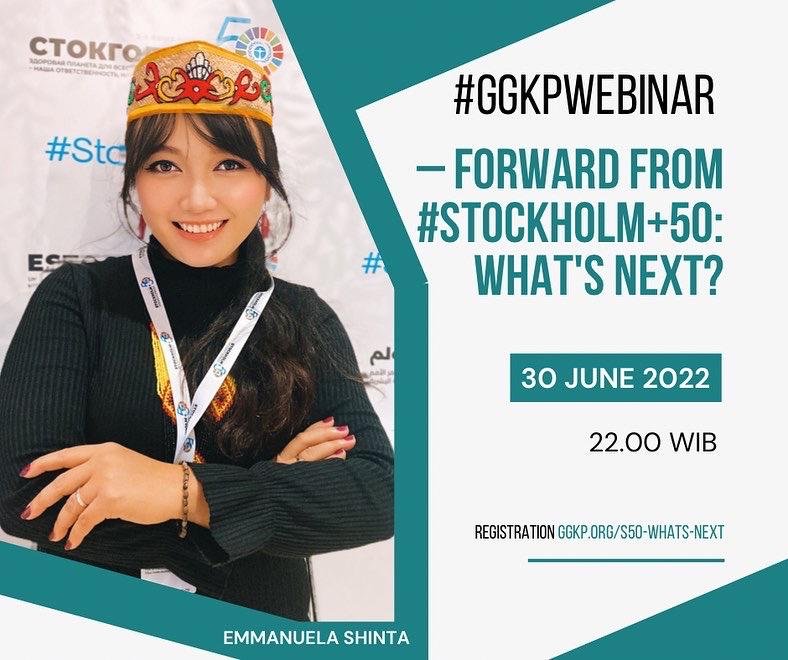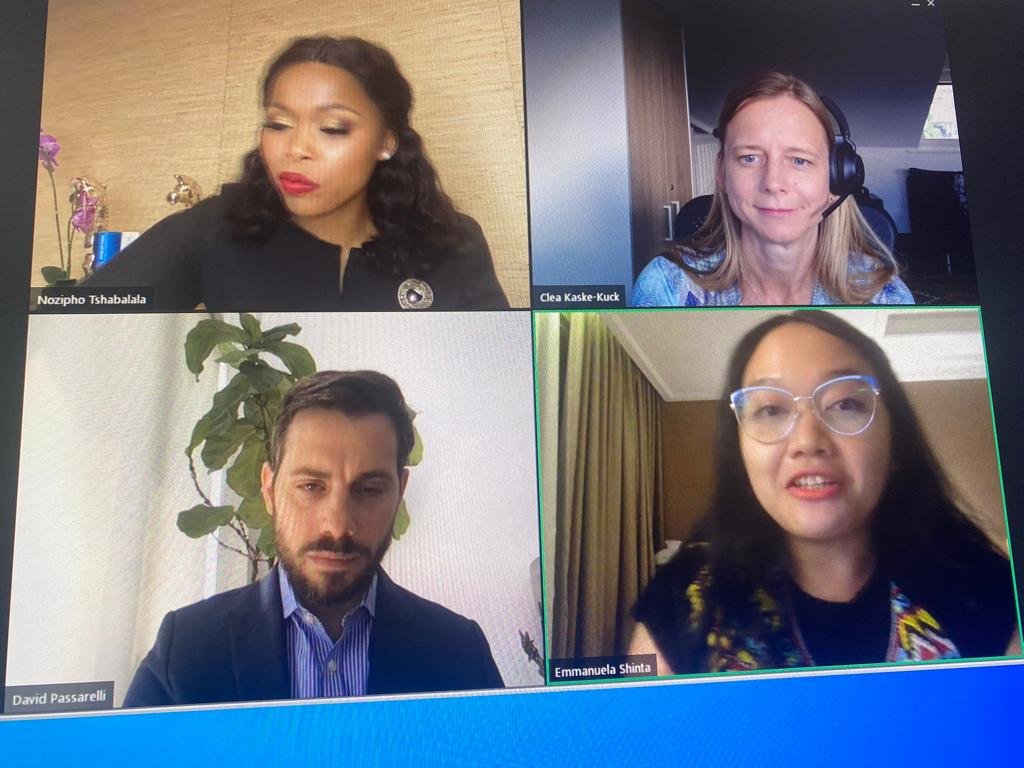#GGKPwebinar – Forward from #Stockholm+50: What's next?
Here is the transcript of Emmanuela’s answer to the questions during the webinar.
1. One big takeaway action from Stockholm+50 and how do you propose that it be taken forward?
My biggest take away is seeing how desperate everyone, from different multi stakeholders, to protect our only one earth. At the Stockholm+50 there are many declarations, consultations, reports, recommendations and even agreement signed. But as the title of our webinar today, What’s next? The challenge is how we convert these concepts that we have into an action, not just a common action but an immediate action, on the ground. When we committed an amount of $100 billion every year for climate finance for developing countries, how can we make sure that communities including youth, women and indigenous people have access to this fund? When we are intentional about clean energy, how can we solve the problems with those illegal coal mining that’s still exploiting the soil, polluting the river and destroying our mother earth? I know we have made a big effort for those outcomes that coming from Stockholm+50, but now I believe we should make even a bigger and harder effort to monitor and accelerate the process of converting these outcomes into real actions. We need to shorten the gap between international agreement and the ground implementation.
2. How can media, film and storytelling help change perspectives and behavior to accelerate transformation of our governance and economic systems?
Throughout the history, the dynamic of the relationship between media and governance & economic systems lies in the function of the media as a source for the dissemination of information regarding political reforms and policies aimed at economic development. In the past, it functions only as a one-directed tool, from government to public. And people used to just receive the information without any capacity to influence anything.
Today, it’s different. People are no longer the passive recipient of information. Especially with the existence of social media and the advance of the technology such as internet and recording tool, people have become the storytellers and the communities are able to speak their own voice. They can tell us what’s really happening on the ground, what’s action exactly needed and point if the systems that we are practicing are right or misleading, bring the solutions and to unite people power for a change. Government serves people, so you need to listen to your people and take those feedback brought by people through media as a guidance to work for the better future and prosperity for all.
3. From your perspective, what immediate actions do governments need to take to ensure that Indigenous youth have opportunities for meaningful engagement?
Generation restoration – some people may say to the older generation, “Hey, you destroy this planet. You steal our future from us! “But I and other indigenous youth always say to our elders, “ Thank you. Thank you for teaching us the wisdoms and knowledge about living in harmony with nature. Thank you for protecting this remain forest. Thank you for fighting hard to defend this land. And today, we will continue your fight.”
When there are still people out there who underestimate youth activism, I want you to know that we, the Indigenous youth of Kalimantan, we are doing this not because we’re inspired or encouraged or called. We are suffering, both from the effect of climate change and the environmental destruction caused by many very not sustainable developments done by government and extractive companies. And if we are not fighting, we’ll lose everything. Our actions are not based on our knowledge, but based on our lives. We don’t need opportunity, we need your solid trust. We need you to trust that our generation is not simply blaming you for everything but we are here today to take our responsibility as the generation restoration, and we will be able to do much if we have you stand by our side, guide us and support us.
Involve us in the process of decision making, give us the fund so we can continue our projects, build our capacities and skills, share us platform where we can participate and keep speaking our voices.
That’s what we want, and that’s how we should work together.


